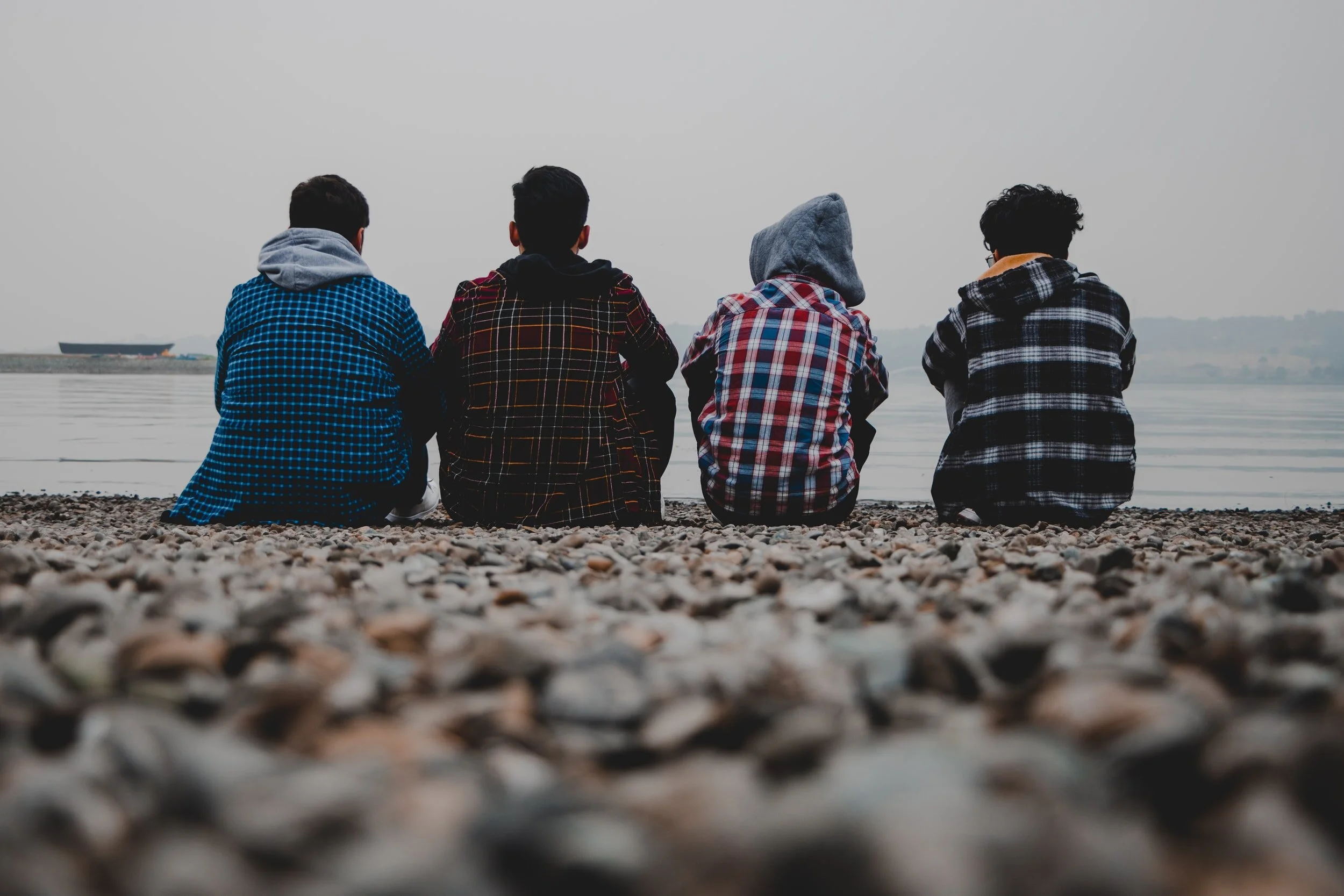The pandemic hasn’t been easy for any of us, but teenagers have been hit particularly hard. From the loss of highly anticipated milestones like prom and homecoming to the social isolation of ongoing lockdowns, it’s been a straight-up bummer of a year. Middle and high school aren’t usually a walk in the park under normal circumstances, so it’s understandable that many tweens and teens have felt more down than usual under these exceptional circumstances.
It’s normal (and natural and human) for any of us to feel a little down this year—kids included. But if you are like many of the parents I know, you may be trying to figure out where the line is between normal sadness and clinical depression when it comes to your child. How can you recognize when a typical reaction to a stressful situation is becoming something more?
Any childhood mental health struggle is cause for concern, but depression can feel extra scary due to the highly publicized rise in suicide rates over the last decade for young people ages 10-24. Most children and teens with depression won’t experience the serious suicidal thoughts that put them at risk. However, it’s helpful to be familiar with the signs and symptoms of depression and take them seriously when they arise. Let’s take a look at some common signs of depression in kids and teens, so you’ll know when to get help if your child is ever in need.
What Causes Depression in Children and Teenagers?
You may have heard that a chemical imbalance is to blame for depression. Many of us have heard of serotonin, and how a lack of it might lead people of all ages to feel depressed. While serotonin and other chemicals in the brain are a part of the puzzle, the causes of depression are much more complicated. Many parts of the brain are involved in depression. In fact, researchers are still trying to figure out exactly what happens in our brains and nervous systems that makes some of us more vulnerable to feeling depressed.
Outside factors like stress and trauma play a major part in depression, too. Any of the following can contribute to a child or teen’s depression:
Genetics: having a close relative with depression puts a child at increased risk
Trauma or ongoing stress, especially if the trauma happened early in a child’s life
Major life changes, like an unwanted move, a breakup, or a divorce or death in the family
Chronic physical health problems
Social isolation
Poor sleep or nutrition
There isn’t usually a “smoking gun” that we can point to as a cause of a child’s depression. It’s more common that several factors have built on each other over the course of months or years and eventually led to a depressed mood. This is even true for kids during the pandemic: as stressful as it has been, the pandemic itself isn’t usually enough to trigger a major depressive episode. However, if your child was already vulnerable due to genetics, stress, or other life changes, they may be having a harder time with depressive symptoms now.
How is Depression Diagnosed in Kids and Teens?
A pediatrician can be a good first stop if you’re concerned about depression symptoms in your child or teen. However, they’ll probably point you in the direction of a mental health professional to make a definitive diagnosis. Pretty much any mental health worker—a counselor, social worker, psychologist, or psychiatrist—is capable of diagnosing common issues like depression.
Therapists use a manual called the DSM-5 to help them when determining whether a child (or adult) is suffering from depression. The DSM-5 gives specific guidelines about the type and number of symptoms a person needs to have in order to qualify as having depression. This gives therapists something concrete they can turn to, rather than just using their intuition or guessing.
According to the DSM, kids and teens need to have at least 5 of these 8 symptoms in order to be diagnosed with Major Depressive Disorder:
Depressed or irritable mood most days (this one is mandatory!)
Decreased interest or enjoyment of activities most days
Unintentional changes in weight or appetite
Noticeably slower thoughts, speech, or movement
Feeling tired or low on energy
Feelings of guilt or worthlessness
Difficulty thinking, concentrating, or making decisions
Repeated thoughts about death or suicide, or making a suicide attempt
In addition to having 5 of these, a child’s symptoms have to get in the way of daily life and cause emotional distress to qualify as Major Depressive Disorder. They also can’t be due to another cause, like drug use or a medical condition.
Just because a child doesn’t fully meet criteria for MDD doesn’t mean they aren’t depressed! There are several other forms of depression that may not be as severe or dramatic as MDD, but can still really get in the way of enjoying life.
Signs of Depression in Children
It can be hard to imagine a very young child being depressed: isn’t early childhood supposed to be the most carefree time of our lives? While not as common as anxiety, about 3.2% of U.S. kids ages 3-17 have been diagnosed with depression. Interestingly, young boys (10 and under) seem to be more at risk of depression than young girls.
Little kids may show symptoms of depression differently than older children. It can be harder for them to put their feelings into words, so you may notice that young children’s signs of depression show up more in their behavior. In addition to the symptoms above, here are some signs of depression more specific to younger children to look out for:
Trouble concentrating at school
Frequent physical symptoms, like headaches and stomach problems, that don’t respond to treatment
Sleep problems: either having a hard time sleeping, or sleeping way too much
Seeming “cranky”, overly sensitive, or quick to cry
Difficulty handling rejection or criticism
Low self-esteem
If you’ve noticed multiple signs of depression in your child that have persisted for more than a few weeks, it’s a good idea to have a conversation with your pediatrician or a mental health professional.
Symptoms of Depression in Teenagers
It’s common for depression to begin in the teen years. Teens have to grapple with body image, sexual identity, and social issues that are different from what any other age group experiences. What’s more, teens are navigating all these challenges in a rapidly changing body, while simultaneously trying to manage intense academic pressure on the way to college or a career. It’s no wonder so many teens feel isolated, misunderstood, or suffer from low self-esteem that may pave the way for depression.
Interestingly, while depression is more common in boys in the early years, the opposite is true among teens. By adolescence, girls are significantly more likely than boys to experience depression. Regardless of gender, depressed teens may not fit our stereotypical image of a withdrawn, quiet, sad-seeming person.
Teens experience their emotions intensely, and their depression can often look like outbursts of anger rather than outbursts of tears. They are also more likely than younger children to express their feelings in impulsive and potentially harmful ways, like substance use or self-harm.
Depression symptoms specific to teenagers include:
Dropping grades at school, especially if the drop is fairly sudden and unusual for the teen
Feeling hopeless or disinterested about the future due to a belief that things will never get better
Frequently talking about death and dying
Withdrawing from friends
Dropping out of extracurricular activities they used to care about
Abusing drugs or alcohol as a way to cope with feelings
Cutting or other forms of self-harm
Speaking to your child’s school counselor or doctor can help you make a plan for your teenager if you notice any of the symptoms above. Any child who talks about suicide or self-harm should be taken seriously. If you worry your teen is at risk of making a suicide attempt, call 911 or your local crisis hotline for help right away.
Counseling for Teens and Tweens with Depression in Davidson, NC
Therapy can make a big difference in a child’s life. The teen years are tough for pretty much everyone, but learning coping skills at an early age can make them a little easier to get through. One of the reasons I love working with tweens and teens is that they’re old enough to learn many of the same skills adults learn in therapy, which means they have a leg up on their current challenges as well as the ones they’ll face in their twenties and beyond.
I use the roleplaying game Dungeons and Dragons as a form of group therapy for tweens with depression. I also provide more traditional talk therapy both in-person and online for tweens and teens. Group therapy can provide kids with the social support from their peers that is so critical to good self-esteem. Individual counseling allows us to take a closer look at the thought patterns that fuel a teen’s depression, and practice coping skills to manage negative thinking.
If your child’s sadness is caused by a recent loss, you can play a big part in giving your child the coping skills to manage grief in a healthy way. My activity book for caregivers and kids is designed to help children ages 5-11 get support and process feelings of grief through simple, play-based activities you can try at home.
If you’re looking for help in the Charlotte area, you’re welcome to request a session at my Davidson, NC teen therapy office. Not local to Charlotte? I also see kids for online therapy throughout North Carolina, Florida, and New York. For more information, contact me here.




